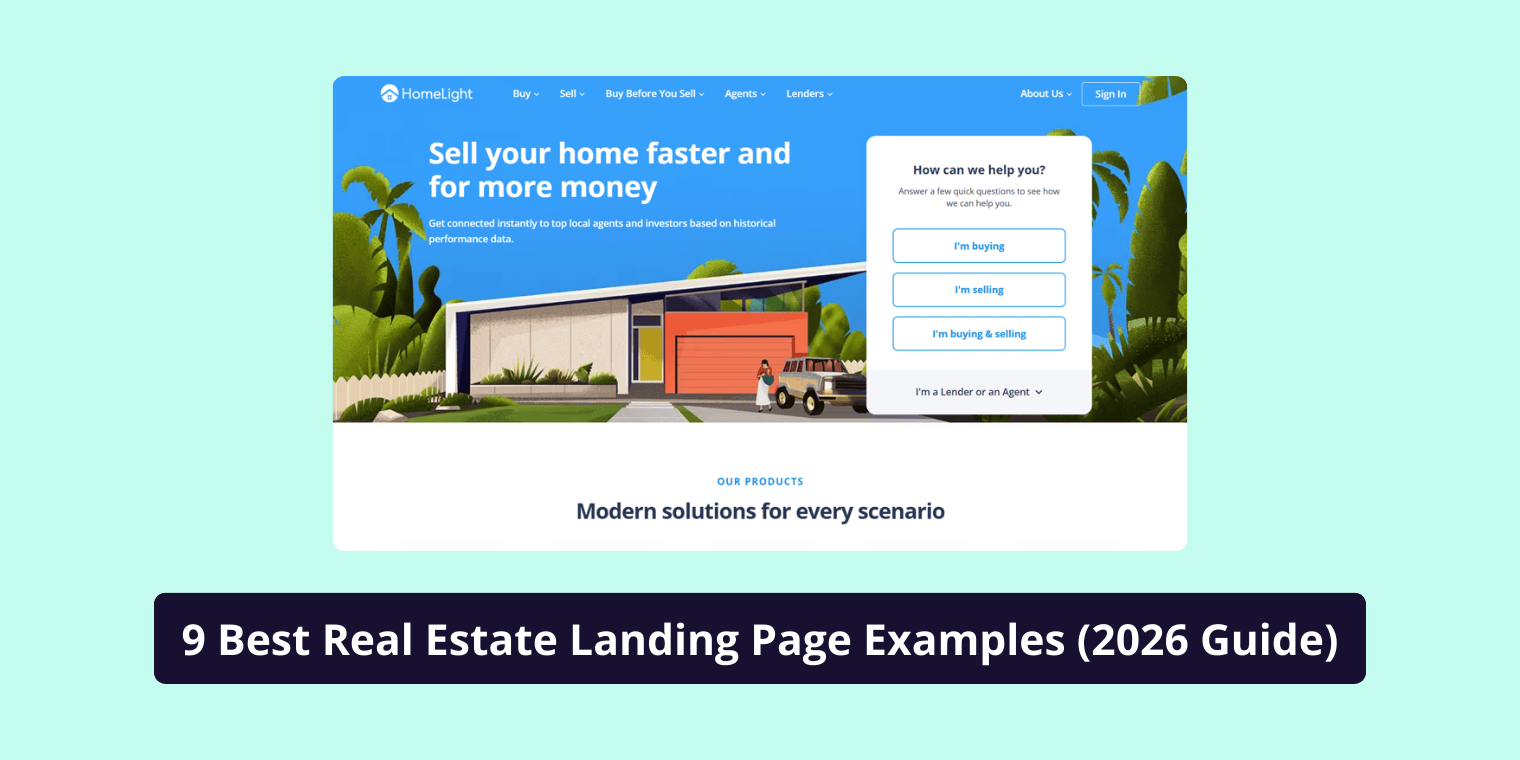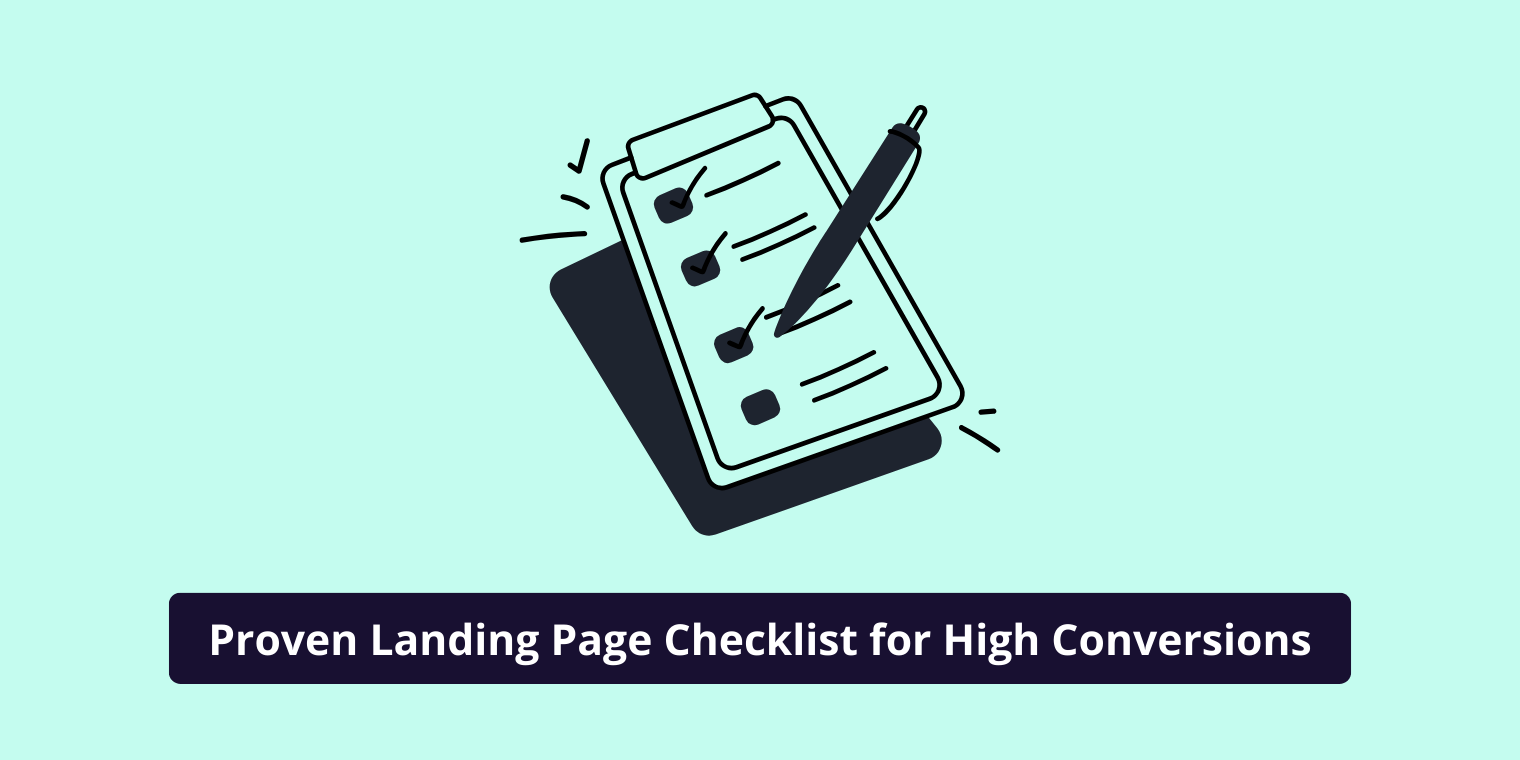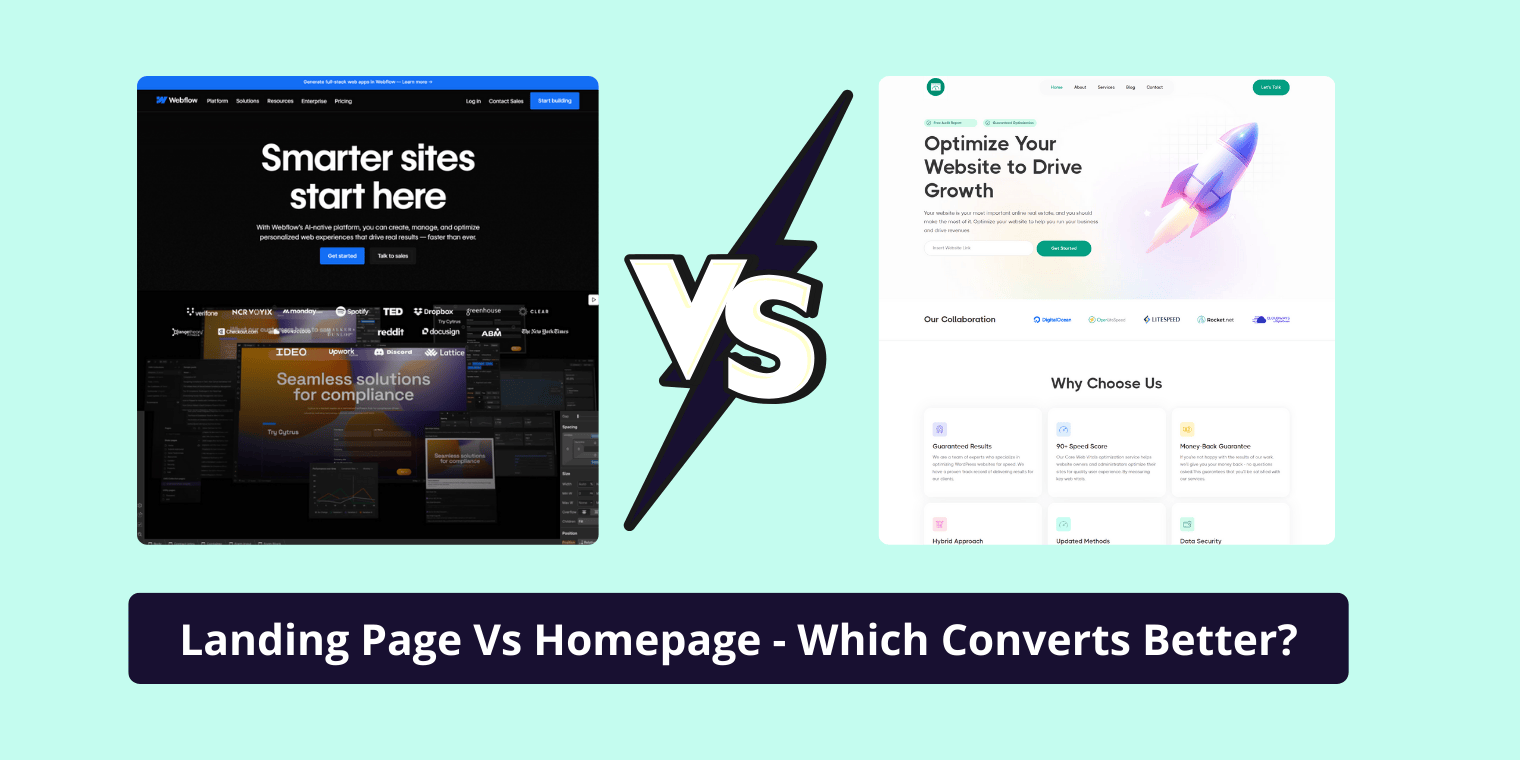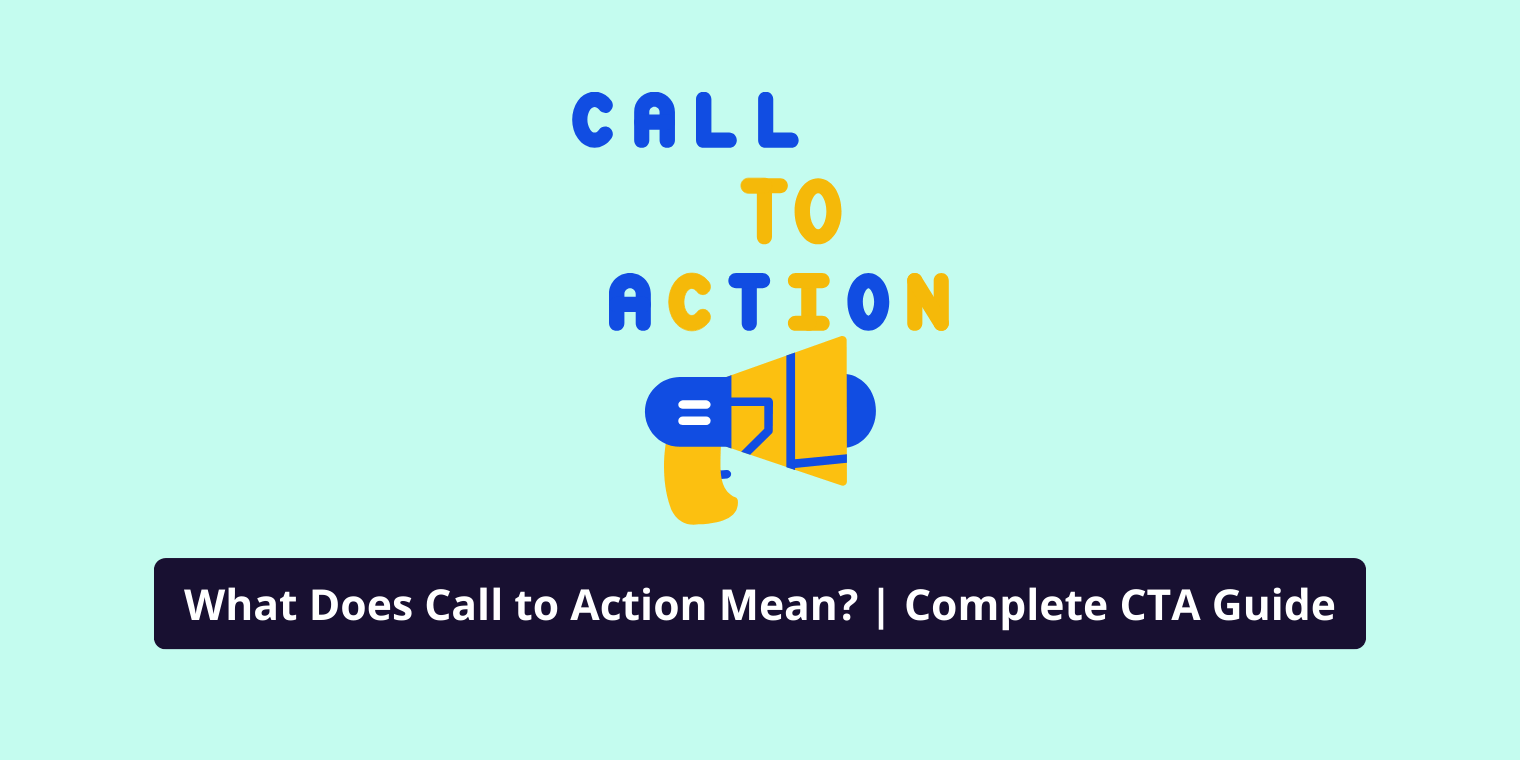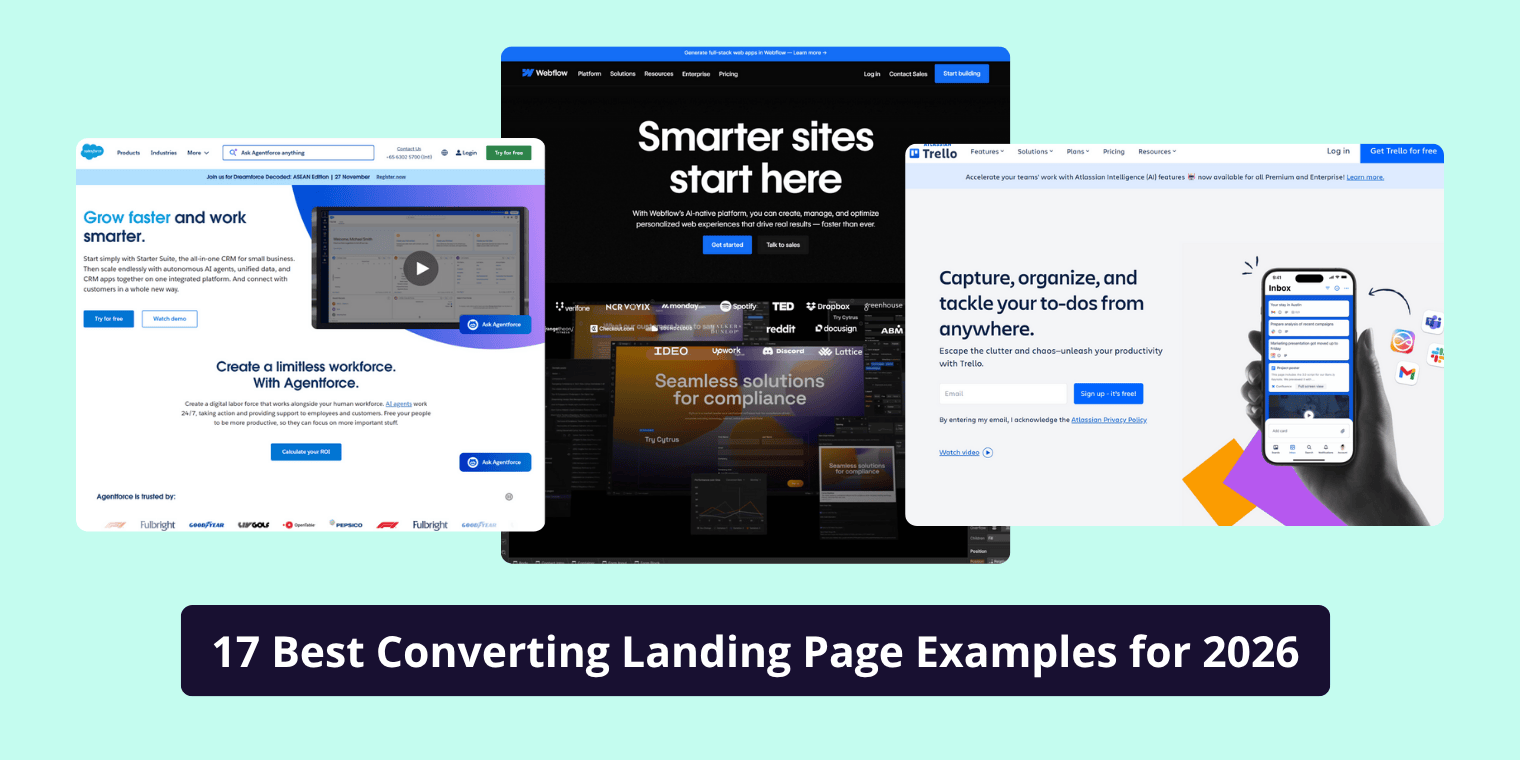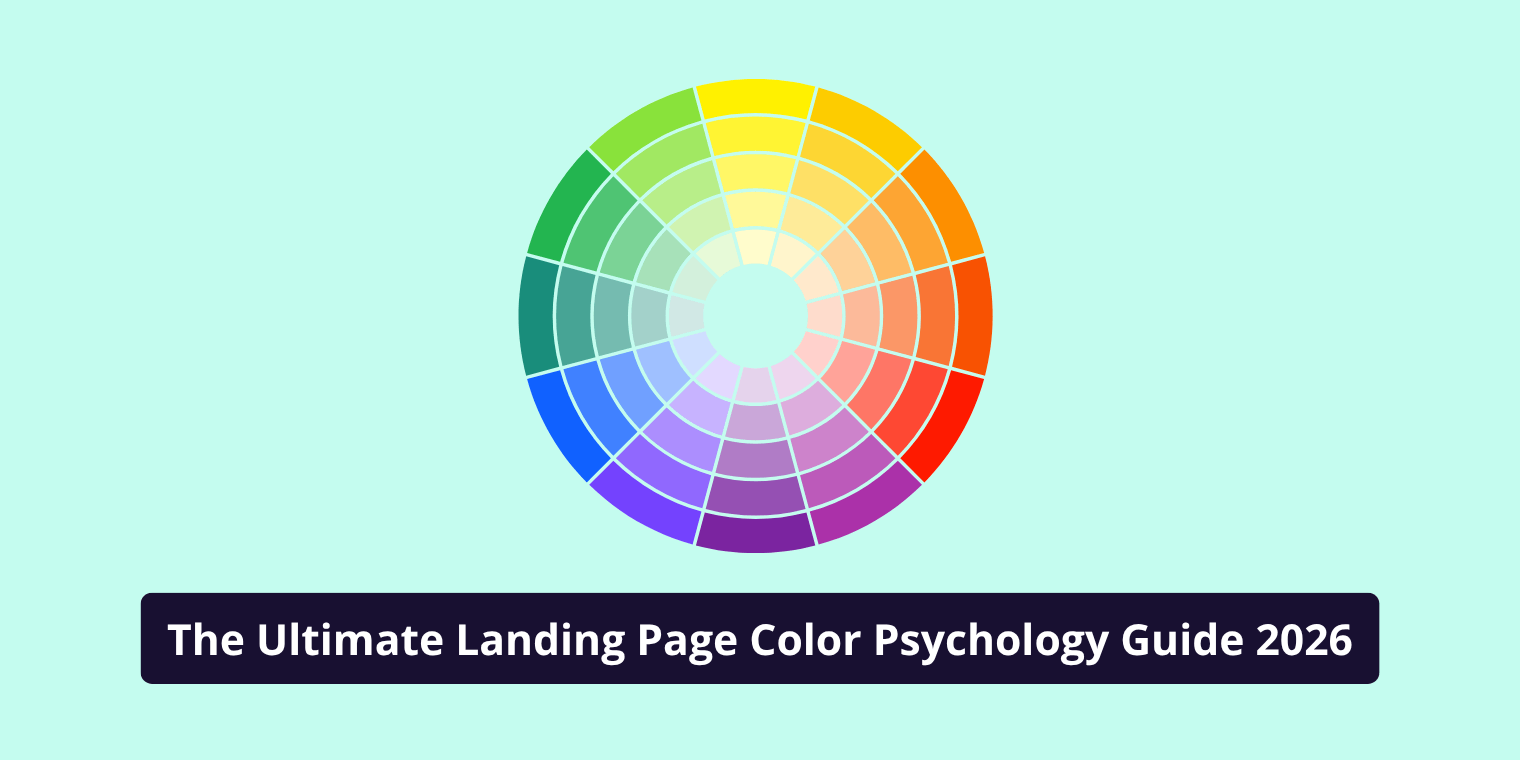A real estate agent landing page is one of the most powerful assets in a modern agent’s marketing toolkit. In a world where buyers and sellers compare multiple agents, consume online reviews, and expect instant access to information, a strong landing page is no longer optional it’s essential.
Unlike a regular real estate website, a landing page is focused, goal-driven, and structured to convert visitors into leads. Whether someone wants a home valuation, is searching for listings, or is comparing agents, your landing page can guide that interest toward action. When designed with intent and optimized with EEAT (Experience, Expertise, Authoritativeness, and Trust), it becomes a high-performing, always-on sales machine.
This article will guide you through everything you need to build a landing page that not only looks great but consistently drives consultations, inquiries, and real estate clients.
What Is a Real Estate Agent Landing Page?
A real estate agent landing page is a standalone web page that focuses on one main goal usually capturing leads from people who are buying or selling a home. Unlike a homepage, which covers multiple topics and links to many different areas, a landing page removes distractions and guides users to a single outcome.
For example, a homeowner searching “How much is my home worth?” may land on your seller-focused home valuation page. A buyer looking for available properties in a neighborhood might land on a page showcasing new listings with a form to book a viewing.
The key is intent. A strong landing page speaks directly to what the visitor wants and helps them take the next step.
Understanding User Intent
Successful real estate landing pages address both informational and transactional search intent. Visitors usually fall into two categories:
Informational visitors want education. They might be researching the selling process, comparing agents, or learning about local market trends. These visitors need trust-building content, proof of your expertise, and helpful resources that guide them toward a decision.
Transactional visitors are already close to taking action. They want a valuation, a consultation, or access to listings. They need a clean, fast, confidence-boosting experience with clear calls to action and minimal friction.
Balancing both types of intent ensures your landing page caters to users at different stages of the decision journey while still driving conversions.
Types of Real Estate Landing Pages
Not all real estate leads have the same intent. Visitors come with different goals, so creating multiple landing pages tailored to each stage dramatically improves conversions.
1. Seller Lead Landing Page
A page focused solely on homeowners who want to sell. The goal is to generate high-intent seller leads.
Include: strong headline, home valuation tool, seller guide, testimonials from past sellers, and clear CTA like “Get Your Home Value”.
2. Buyer Lead Landing Page
Designed for buyers looking for listings or guidance in their home search.
Include: MLS/IDX listings, neighborhood filters, featured homes, and a CTA such as “See Homes in Your Area”.
3. Home Valuation Landing Page
One of the most effective seller lead generators.
Provide: instant valuation tool, explanation of how valuations work, and follow-up incentives.
4. Free Guide Download Page
A landing page built to offer gated content like buyer or seller guides.
Perfect for nurturing earlier-stage leads.
5. Coming Soon / Coming-Soon Listing Page
A high-converting page promoting an upcoming listing with exclusivity messaging.
Useful for early interest and generating buyer inquiries.
6. Open House Landing Page
Dedicated page with date, time, RSVP form, property details, and photos.
Boosts attendance and allows follow-up after the event.
7. Instant Cash Offer Page (Investor/iBuyer Style)
Attracts sellers looking for fast, no-hassle sales.
Highlight speed, convenience, and transparency.
8. Neighborhood-Specific SEO Landing Pages
Individual pages for each neighborhood, ZIP code, or community you serve.
Includes: market stats, local listings, school districts, and area insights.
9. Facebook/Google Ads Landing Pages
Designed specifically for PPC traffic with fast loading, minimal links, and a very clear CTA.
10. Luxury Real Estate Landing Page
High-end visuals, premium language, strong brand presentation, and social validation.
| Landing Page Type | Ideal For | Goal | Best CTA |
|---|---|---|---|
| Seller Valuation | Homeowners | Capture seller leads | Get My Home Value |
| Buyer Listings | Buyers | Book viewings | View Homes |
| Luxury Agent | High-end clients | Build authority | Schedule a Consultation |
| Neighborhood SEO Page | Local traffic | Rank locally | Explore Homes in [Neighborhood] |
| Investor Cash Offer | Distressed sellers | Fast lead capture | Get a Cash Offer |
Core Elements of a High-Converting Real Estate Landing Page
A Strong Hero Section
The hero section is where first impressions are formed. A clean layout, confident headline, and high-quality agent photo instantly set the tone. Visitors should understand within seconds who you are, what you offer, and why they can trust you.
A clear value statement such as “Sell Your Home for Maximum Value With a Local Expert” or “Find Your Perfect Home in [City] With Proven Guidance” anchors the experience.
The hero section should also include a primary call to action. Buttons such as Get Your Home Valuation, Book Your Consultation, or View Listings guide users toward the next step without needing to scroll.
Showcasing Experience and Authority (EEAT)
Real estate is a trust-driven business. Sellers and buyers need to feel confident that the person they hire has expertise, local knowledge, and a track record of successful outcomes. This is where EEAT comes into play.
Highlighting your credentials establishes authority. Mentioning years of experience, the number of homes sold, certifications such as REALTOR®, CRS, or ABR, and awards creates an immediate sense of professionalism.
Social proof is equally powerful. Logos from platforms like Zillow, Realtor.com, and Google Reviews help validate your reputation. If you’ve been featured in local media, adding those logos can further elevate credibility.
The goal is to answer a visitor’s unspoken question: “Why should I trust you over another agent?”
A Simplified, High-Converting Lead Form
Many agents lose potential clients because their forms are long, complicated, or ask for too much information too soon. Your visitors are often busy or hesitant, so the lead form needs to feel simple, fast, and safe.
A minimal set of fields name, email, and a short message usually performs best. For seller pages, you might add fields for property address or home type because those details are valuable to both parties.
Supporting microcopy, such as “No spam, ever” or “Get a response within 24 hours,” can further reduce hesitation.
The placement of the form also matters. Putting it above the fold gives visitors immediate access, while repeating it at the bottom catches those who scroll for more information before deciding.
Integrating Listings or MLS/IDX Search
Although optional, an MLS or IDX search module can increase engagement, especially on buyer-focused landing pages. Giving users the ability to explore active listings within the landing page environment keeps them on your site longer and increases the chance they will convert.
If IDX integration isn’t available, featuring select listings or market highlights can achieve a similar effect. You can showcase new arrivals, recently sold homes, or featured neighborhoods to emphasize your local expertise.
Testimonials and Client Success Stories
Nothing builds trust faster than real, verified client experiences. Testimonials demonstrate reliability and paint a clear picture of what working with you is like. Instead of generic quotes, aim for specific and outcome-driven stories such as how quickly a home was sold, how much above list price you achieved, or how you helped a buyer secure a competitive property.
When possible, use reviews from trusted sources like Google, Zillow, or Realtor.com. Including photos of clients can further humanize your brand and build emotional credibility.
Local Market Expertise
Visitors want to know whether you truly understand the neighborhoods you serve. Including market snapshots such as average sale prices, days on market, or recent trends can instantly highlight your expertise.
You can also add information about key neighborhoods, school districts, local amenities, and community insights. If you serve multiple ZIP codes or areas, listing them boosts local SEO and ensures you appear in more searches tied to specific locations.
Lead Magnet Resources for Buyers and Sellers
Offering useful resources is one of the best ways to capture leads who aren’t ready to commit yet. Examples include:
- A free downloadable seller guide
- A buyer’s roadmap or pre-approval checklist
- A home valuation estimate
- A neighborhood market report
- A “How to Prepare Your Home for Sale” guide
These resources demonstrate expertise and provide real value while nurturing long-term leads.
Effective Calls to Action
Your landing page should move visitors toward a clear next step. The best CTAs are benefit-driven and specific. Instead of “Submit,” consider phrases such as:
- “Get My Home Valuation Now”
- “Schedule My Free Consultation”
- “See Available Homes in [City]”
- “Download the Seller Guide”
These CTAs are more persuasive because they speak directly to what the visitor wants.
Design Principles and Best Practices
A real estate landing page must be visually appealing, mobile responsive, and distraction-free. Most users browse from phones, so mobile usability is just as important as desktop design.
High-quality imagery particularly professional agent photos and local area visuals helps create an immediate sense of familiarity. Your color palette should be consistent with your brand, and the layout should provide enough spacing to feel clean and modern.
From a copywriting perspective, clarity beats complexity. Write with the user in mind. Use short paragraphs, scannable sections, and confident language that highlights value rather than simply describing features.
Technical SEO for Real Estate Landing Pages
A high-converting landing page must also be optimized for search engines. Fast load times, optimized images, clean URLs, and proper metadata all contribute to better ranking and higher conversion rates.
Adding schema markup such as Real Estate Agent, Local Business, Service, Review, and FAQ helps search engines understand your content while giving you the chance to appear in rich results and featured snippets.
Keep your page secure with SSL, update it regularly, and ensure it performs well on both desktop and mobile.
Conversion Optimization Strategies
The most effective landing pages are constantly evolving. A/B testing different elements can help you understand what resonates with your audience.
You might test headlines, calls to action, photos, or form fields. Even small changes such as adjusting a button color or simplifying form inputs can significantly increase conversions.
Personalization is another powerful strategy. Tailoring content based on location, device, or whether the user is a buyer or seller can instantly make the experience feel more relevant.
Reducing friction is also key. Remove unnecessary fields, use trust-boosting microcopy, and provide instant confirmation messages so users know their submission was successful.
10 Examples of Real Estate Landing Page
1. Zillow Premier Agent
Zillow’s landing pages excel with dynamic property data, neighborhood insights, and instant home value tools. Clear CTAs and trust-driven design make it effortless for users to browse homes or connect with agents.
Link: Zillow

Why it’s great:
- Strong brand trust and national authority
- Clean, clutter-free layout
- Prominent call-to-action for leads
- High-quality visuals and agent branding
- Client reviews and ratings displayed prominently
2. Compass – Luxury Agent
Compass uses sleek visuals, polished branding, and high-end photography to create luxury-focused landing pages. Their clean design and strong agent spotlight elements build trust and appeal to premium buyers and sellers.
Link: Compass

Why it’s great:
- Premium visual style that appeals to upscale clients
- Clean, polished layouts
- Strong neighborhood expertise cues
- Professional photography and branding
3. Redfin – Agent Finder
Redfin delivers fast, data-rich pages with real-time MLS updates, interactive maps, and transparent pricing. Their clean layout and instant search tools help users quickly evaluate homes and book tours.
Link: Redfin

Why it’s great:
- Easy comparison interface
- Clear metrics (homes sold, reviews, years of experience)
- High trust through performance transparency
- User-friendly design
4. Realtor– Agent Directory & Profiles
Realtor.com pages stand out for their authoritative market data, intuitive search filters, and strong credibility markers. Users get a smooth experience supported by verified listings and detailed neighborhood stats.
Link: Realtor.com
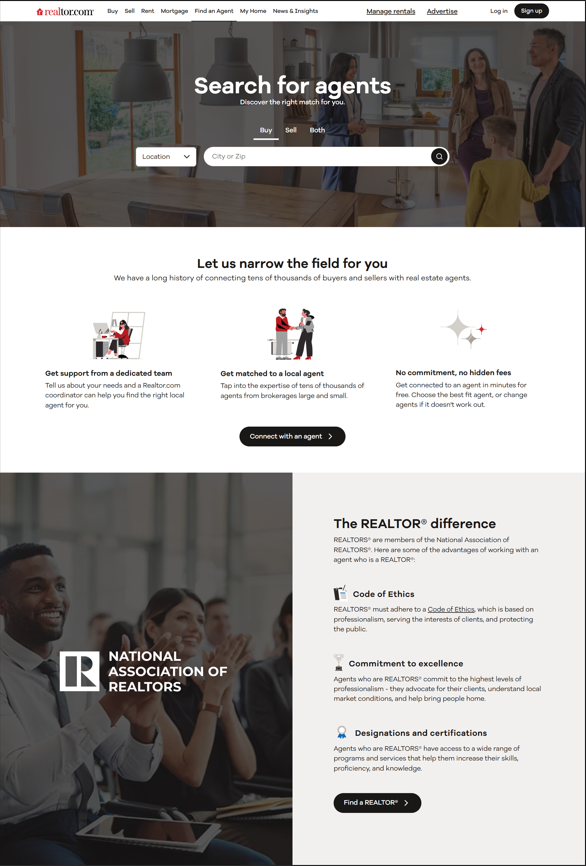
Why it’s great:
- Strong credibility via verified reviews
- Clean and structured layout
- Trusted national brand
- Rich agent details for informed decision-making
5. Keller Williams (KW) – Agent
Keller Williams offers structured, lead-optimized pages where agent info, testimonials, and listings are well balanced. Their streamlined forms and localized market tools make it easy for visitors to take action.
Link: Keller Williams
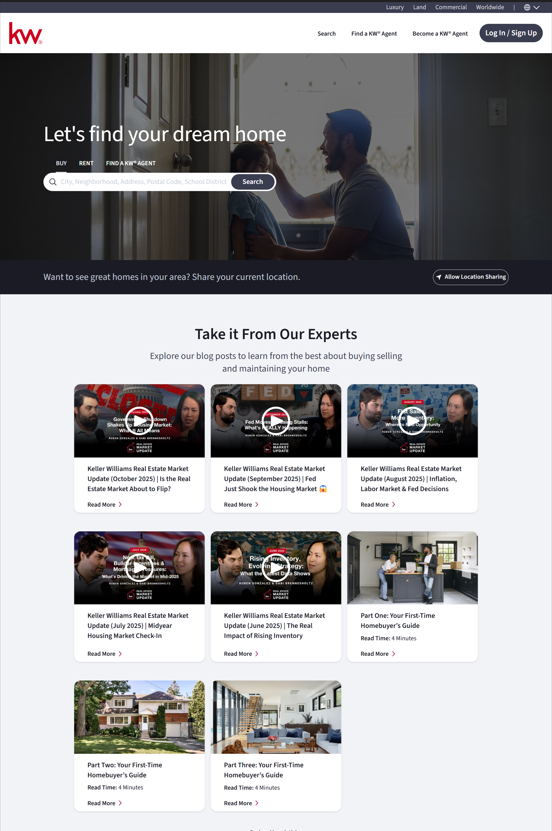
Why it’s great:
- Simple and focused on conversion
- Consistent KW brand experience
- Mobile-first design
- Clear search & contact CTAs
6. Homelight – Agent Matching
HomeLight’s pages shine through data-driven trust elements, showcasing agent performance stats, success percentages, and transparent comparisons. The simple layout and credibility-forward approach help users make confident choices quickly.
Link: Homelight
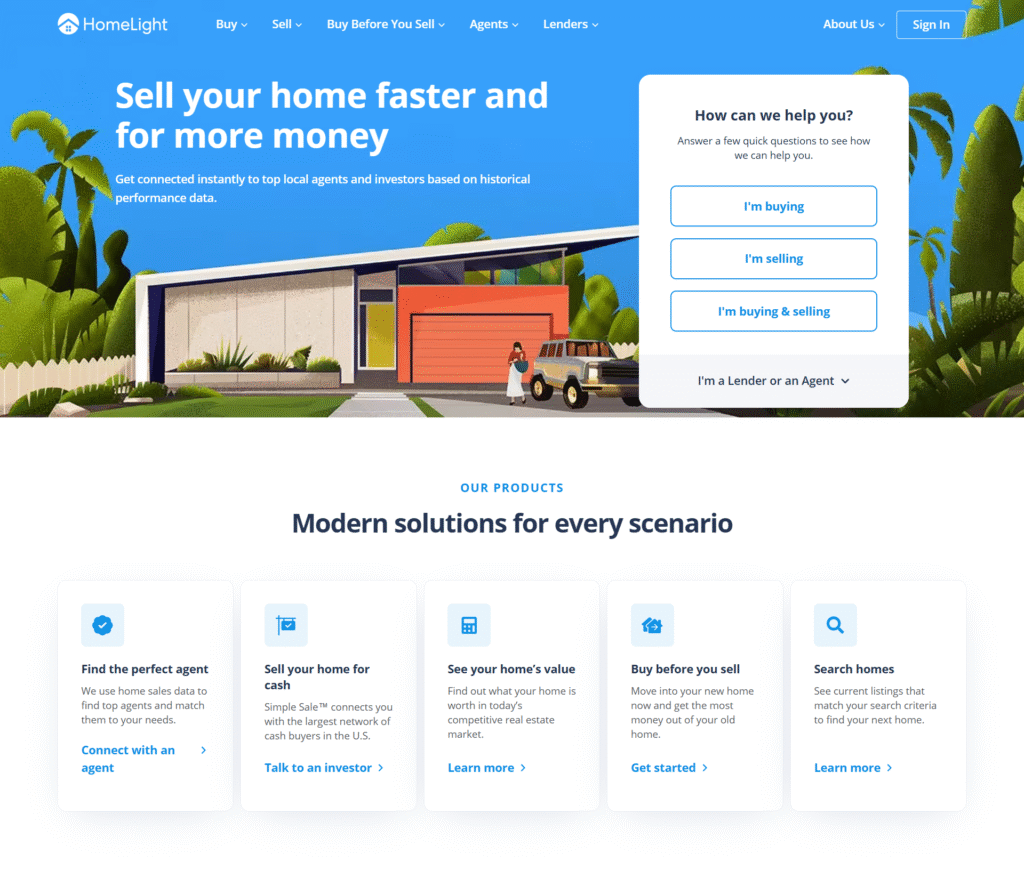
Why it’s great:
- High authority through data-backed recommendations
- Instant match feature
- Clean trust-building design
- Excellent use of social proof
7. Opendoor – Sell Your Home
Opendoor’s landing pages excel with instant-offer simplicity, clean UX, and clear cost breakdowns. Their transparent value proposition, real-time pricing tools, and minimal design create a frictionless lead experience for motivated sellers.
Link: Opendoor

Why it’s great:
- Extremely frictionless experience
- Straightforward single CTA
- Modern minimalistic layout
- Strong consumer confidence messaging
8. Zoocasa – Agent Services
Zoocasa uses a polished, modern layout with strong market insights, curated listings, and agent-matching tools. Their emphasis on accuracy, local data, and clean filtering makes the landing experience both helpful and conversion-friendly.
Link: Zoocasa

Why it’s great:
- Data-driven insights
- Strong trust indicators
- Very clean layout with modern visuals
- Good hierarchy for scanning
9. eXp Realty – Agent
eXp Realty’s agent pages convert well thanks to their clean layout, strong hierarchy, and trust-driven design. Each profile blends agent credibility, active listings, testimonials, and clear CTAs, making it easy for visitors to evaluate the agent and take action quickly.
Link: eXp Realty
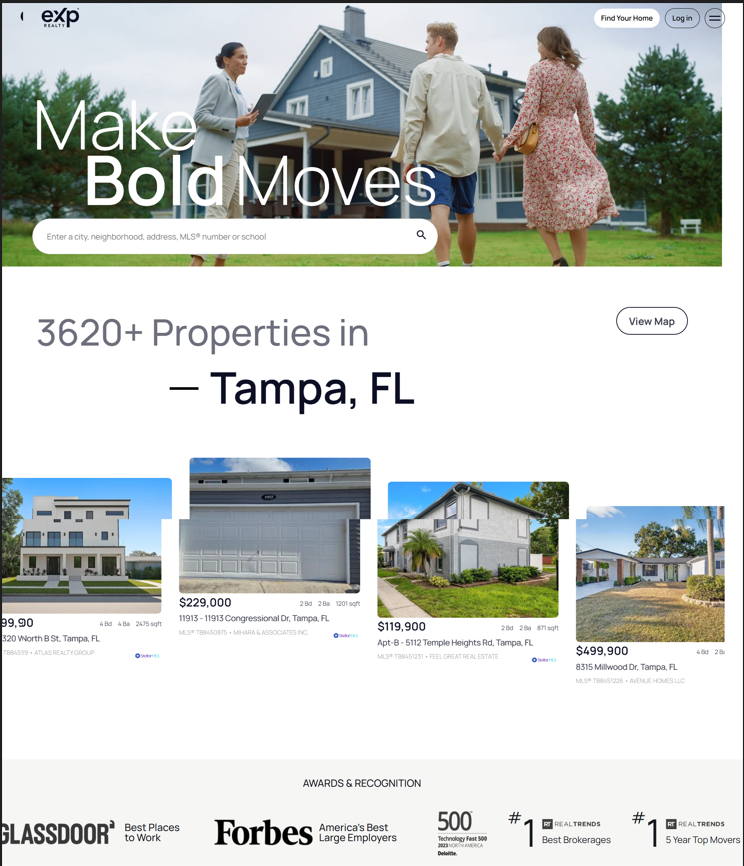
Why it’s great:
- Easy-to-navigate layout
- Integrated listings boost engagement
- Clear CTAs for contact
- Consistent branding across agents
Key Takeaways
- A high-performing real estate agent landing page focuses on one goal capturing qualified buyer or seller leads with minimal distraction.
- Strong hero sections, clear CTAs, and trust elements (reviews, badges, awards, media mentions) dramatically improve conversions.
- Pages that highlight specific neighborhoods or property types perform better due to higher search-intent alignment.
- Lead magnets like home valuation tools, market reports, and buyer guides significantly increase form submissions.
- Using professional visual agent photos, sold listings, local imagery boosts credibility and increases time on page.
- Fast load speeds, mobile-first layouts, and SEO elements (schema markup, local keywords, internal links) improve ranking and conversions.
- Advanced CRO features A/B testing, dynamic content, short forms, smart CTAs give agents a competitive edge.
- Integrating landing pages with a CRM, automated follow-up, and retargeting ads ensures more of your leads actually convert into clients.
- Real estate landing pages that offer value first (tools, calculators, guides) outperform pages that immediately hard-sell services.
- Consistency in branding, messaging, and tone helps build trust, especially for first-time visitors researching agents.
